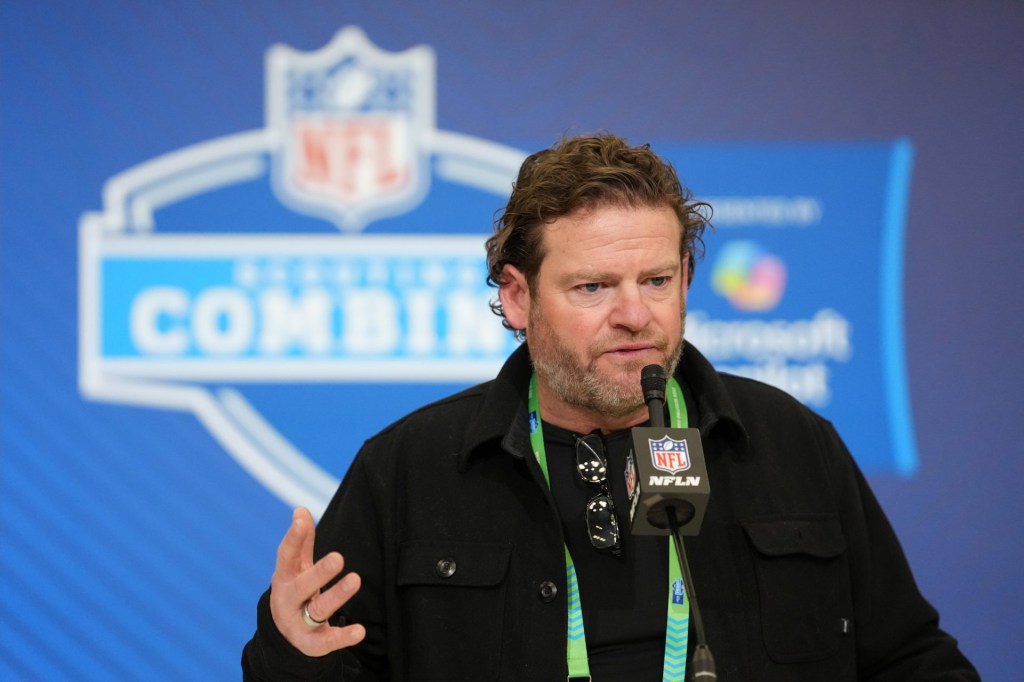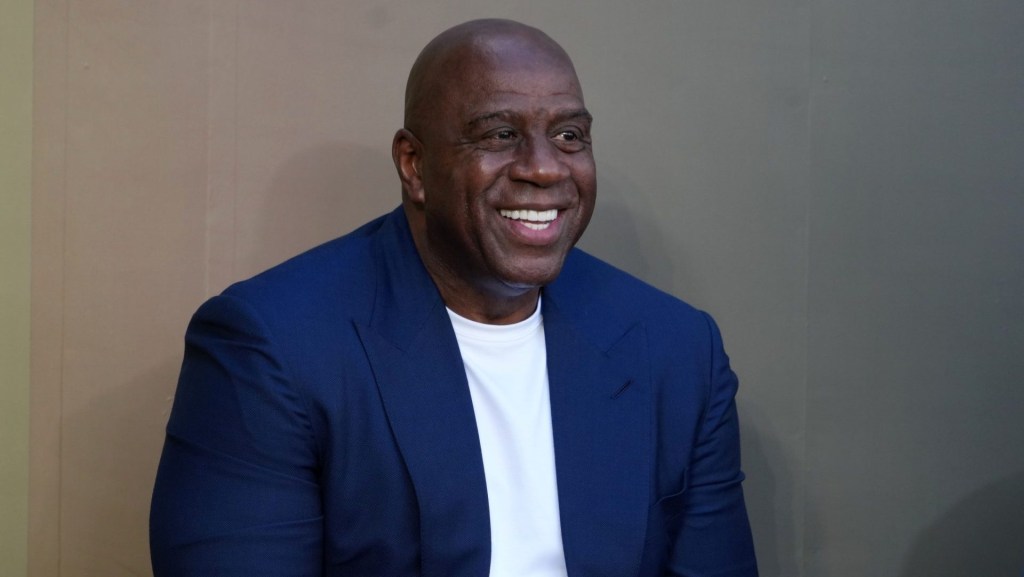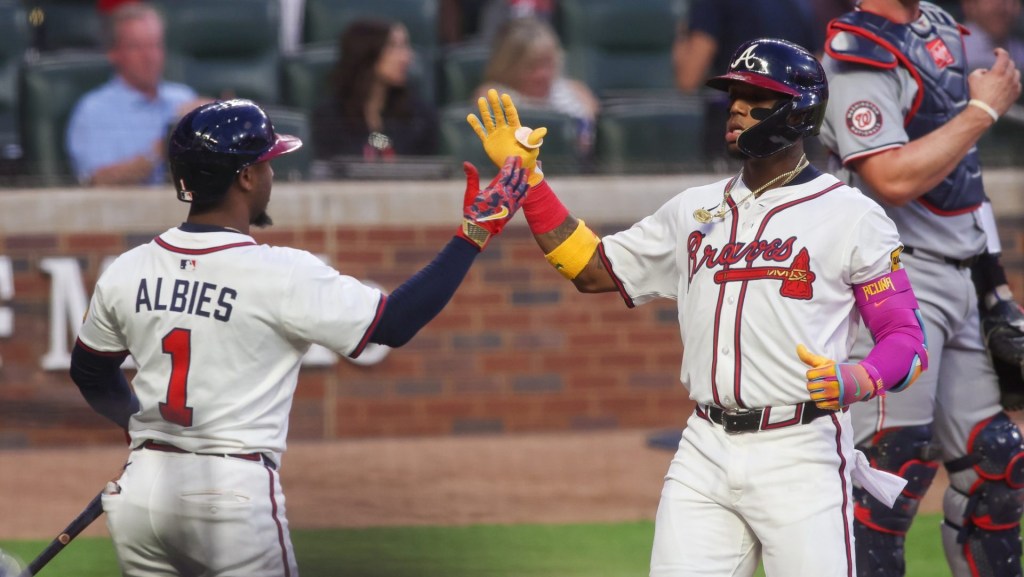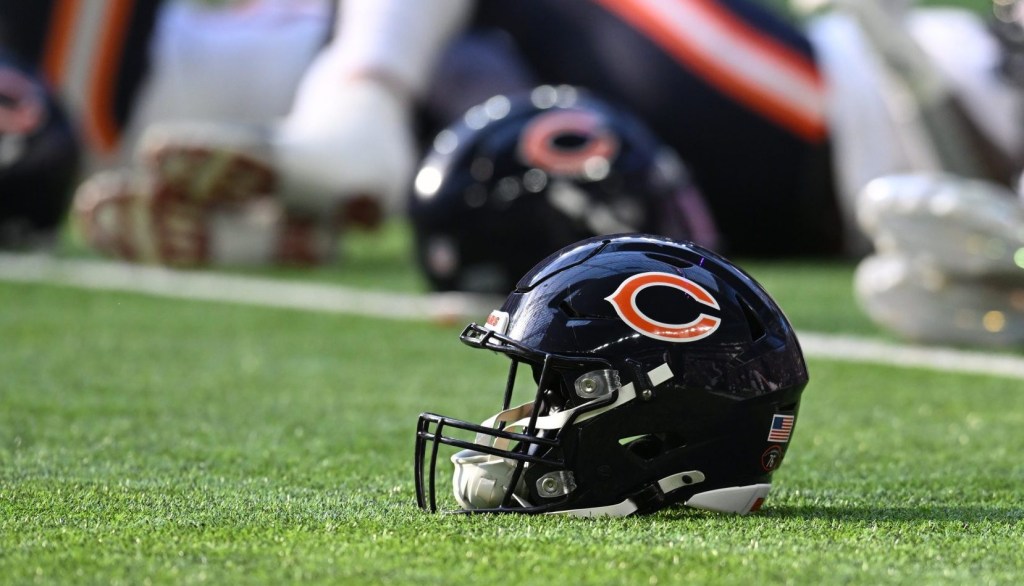The A’s are set to begin an incredibly awkward MLB season. They are preparing to move to Las Vegas but will play at least one more season at the much-maligned Oakland Coliseum amid fan protests. The team is still sorting through issues at the site of the Tropicana hotel and casino, where it intends to build, and—with its lease at the Coliseum ending after the 2024 season—has not settled on a ballpark for ’25–27 while its new stadium is being constructed.
The relocation was meant to end a 20-year saga in which the team has sought a new home while largely ignoring its current one falling into increasing disrepair.
Here is everything you need to know about the ongoing situation around the team’s attempted move to Las Vegas.
Is this the A’s last season in Oakland?
We don’t know, and neither do the A’s. The team’s lease ends after this season, so it needs a place to play from 2025 to ’27, or longer if there are any construction delays. The A’s have explored Salt Lake City, Sacramento, sharing Oracle Park with the Giants, and staying at the Coliseum for the interim. Conflicting reports put Sacramento and Oakland as the front-runners. Sharing a park with another MLB team could be logistically impossible.
In many ways, Oakland makes the most sense. The A’s are already there, they have experienced staff who knows the venue and ball-game operations, and they have a media deal that pays them around $70 million annually as long as they stay in the area.
Do they keep that media money if they go to Sacramento or Salt Lake City?
Nope.
So why not just stay in Oakland?
Imagine you and your partner break up, but you’re still living together for at least a month while you find a new place. It’s a tough housing market, and you have very specific needs for your living space. You have something lined up a few months out, but until then you need somewhere to stay, and the current place makes by far the most sense. But you’re not on the lease, you were underpaying before, and during the breakup, you repeatedly said, “It’s not me, it’s you.” Your ex is willing to let you stick around for a while, but it’s going to be on their terms.
I would never do that. Also, what are Oakland’s terms?
Right, you would handle this with much more care and sense than the A’s.
At minimum, the city can ask for a fair chunk of that $70 million just by sticking around. Oakland Mayor Sheng Thao has raised the possibility of demanding that the city retain rights to the team name and that Oakland be guaranteed an expansion franchise when MLB adds new teams (which it will at some point in the next 10 years). Neither is likely to be on the table (and an expansion guarantee would necessitate an agreement with MLB, which would be a major stretch).
So far, the team and city have had one meeting, which they said went well, but they declined to elaborate.
When are the Oakland A’s moving to Las Vegas?
2028. Probably.
Probably?
Some longtime observers of the A’s and their owner John Fisher would say “probably” is generous. The team needs to secure funding, keep its state funding, avoid any issues with the site it plans to build on, and keep things on pace to play in Las Vegas on Opening Day 2028.
“If you’re saying that there’s a chance it might not open by 2028, then it’s not [opening then],” The Athletic’s Tim Kawakami said on the Front Office Sports Today podcast, referring to MLB commissioner Rob Manfred saying that he would prefer the team to be in its new home by that year.
Which of those factors is the biggest hurdle?
The Tropicana site presents several issues: The A’s are being gifted nine acres by Bally’s, which leases the site, but that’s a tight fit—especially if the team retains the initial vision that they pitched to Nevada legislators, which included a retractable roof. Many assume that the team will settle for a fixed roof. Only Target Field in Minnesota, which sits on 8.5 acres, would be of a comparable size among MLB stadiums. If the A’s change sites, they lose the $380 million in public funding provided by Nevada.
What happens if the A’s lose that funding?
Then they are back to square one. (Square zero?) Anything is possible from there, including Fisher’s heeding the chants heard in Oakland and other MLB stadiums of “Sell the team.”
People were chanting “Sell the team” at other stadiums?
Yes, even at the All-Star Game in Seattle. The A’s sale became something of a national movement.
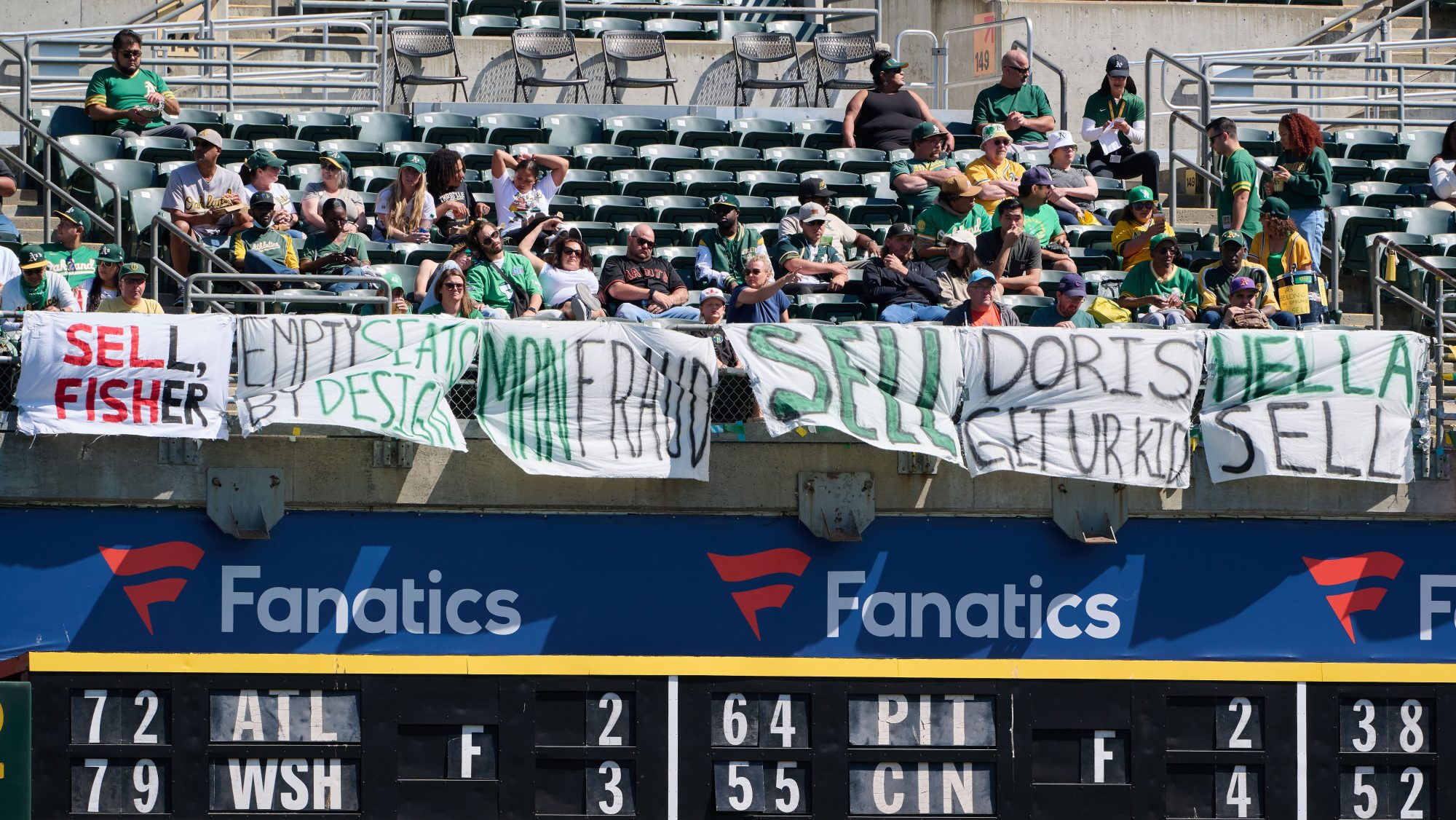
Are there other ways he could lose the funding?
Nevada teachers’ unions are hell-bent against the state giving out money for a privately owned stadium that could go to schools instead. They have filed a lawsuit claiming the legislation that authorized the funding is unconstitutional, and they are also pursuing a ballot referendum. The referendum requires 102,362 to make it on the ballot, which is a heavy lift, so the lawsuit is currently getting more attention.
Why would a state funding a stadium be unconstitutional? They do it all the time. Nevada gave the Raiders $750 million.
The lawsuit claims that the bill should have required a two-thirds majority, not a simple majority, because it introduces new state revenue. The bill did not reach the two-thirds threshold in the state senate or assembly. It also claims the law is unconstitutional on four other counts, mostly related to how it requires Clark County to issue bonds to cover some costs.
Bally’s is demolishing the Tropicana to make room for the A’s stadium. Would they do that if there was any chance they weren’t coming?
The Tropicana is closing for business April 2 to prepare for demolition. That may not be a simple matter, if murmurs of the need for substantial asbestos remediation are correct, but regardless, the end of the Tropicana is coming. Gaming and Leisure Properties, which leases the site to Bally’s for $10.5 million annually, is contributing $175 million to the demolition.
However, the hotel and casino was one of the oldest on the Las Vegas Strip, and the company was reportedly looking to rebuild it at some point, anyway. The A’s move simply provided an accelerant.
You mentioned that the A’s are still seeking funding to build the stadium. How much do they need?
About $1.1 billion. Nevada and Clark County are providing $380 million, and the stadium is expected to cost $1.5 billion in total. The A’s are responsible for any cost overruns.
John Fisher is worth $2.9 billion. Can’t he pay for this himself?
Fisher said he and his family “have the equity” to do so, but he is also looking for minority investors in the Las Vegas area. Whether he is actually willing and able to foot the bill is not easily knowable without a look at his finances. The team was working with Goldman Sachs last year on a combination of debt and equity financing.
Nevada politicians were won over by the A’s. Will investors be as well?
The incentives at play are quite different. The Democrat-controlled Nevada legislature supported the bill providing funding for the A’s only after adding in unrelated provisions, including parts of other bills that had previously been vetoed by Republican Gov. Joe Lombardo. Investors, on the other hand, would have to see a path toward profit from owning a piece of the team, and that could be a tougher sell.
It doesn’t help that the team’s valuation of $1.18 billion, per Forbes, is roughly equal to the amount the A’s need to chip in to build the stadium. (While these values are a subjective exercise, the same list nailed the Orioles’ sale price: The team was listed at a $1.7 billion valuation and sold in January for $1.725 billion.) Furthermore, potential investors are likely to be skeptical of the claims the team made to legislators, including that they will draw 8,000 tourists per game in perpetuity—an estimated 8% of all Las Vegas tourists. The team is also moving to a much smaller media market, and Fisher has historically run some of the smallest payrolls in MLB, making it a challenge for the A’s to stay competitive on the field.
Can Bally’s help?
Unlikely. The gambling company is providing the A’s nine acres of land, but its generosity likely ends there. As of the end of 2023, Bally’s held $3.64 billion in long-term debt, against a market cap of $479.5 million, and ’23 revenue of $2.45 billion. They are heavily leveraged already and won’t be receiving revenue from the Tropicana site until they build something new.
What will Bally’s do with their portion of the Tropicana site once there is a stadium there?
As of their earnings call on Feb. 21, Bally’s was still waiting on the A’s to finalize their plans for how to physically position their stadium before committing to a plan for the 35 acres they’ll have surrounding the stadium. MGM Resorts International CEO Bill Hornbuckle said he had seen three potential arrangements for the stadium and how it will connect with Las Vegas Boulevard.
The team would like fans to have a view of the Las Vegas Strip while watching games, but that would involve pointing the stadium northwest (and MLB stadiums are preferably angled east/northeast so that batters aren’t looking into the sun as it sets). This may all be moot if the stadium is a permanently closed dome.
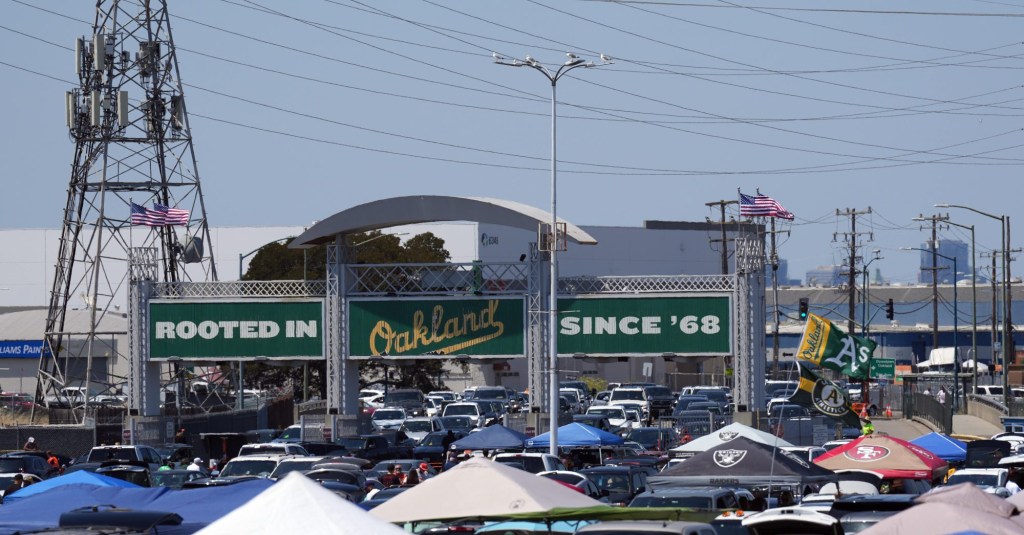
When will the A’s produce stadium renderings?
Don’t put your money on any particular date—your odds are likely better at the roulette table. The A’s initially said they would release them in early December but postponed the release due to a tragedy in which two state troopers died. Fisher said in January that the delay was because he wanted to “give everyone a better picture of what the redeveloped location would resemble.”
However, that explanation doesn’t fit with the recent statements from Bally’s that they are waiting for the A’s to settle on a plan before moving ahead with any decisions on the portion they are retaining for their own purposes.
A’s president Dave Kaval said the team could put out renderings March 7 when the team plays a spring training series against the Brewers in Las Vegas. Don’t hold your breath.
All of this seems challenging but doable. Why all the skepticism that the A’s will actually move?
There is indeed skepticism. Las Vegas Mayor Carolyn Goodman said on Front Office Sports Today that the choice of the Tropicana lot “doesn’t make sense” and that she believes the A’s ultimately want to stay in Oakland. Vital Vegas has maintained that the move has a 60% chance of happening and has cast doubt that the Tropicana site will be where the A’s land.
Others, such as Kawakami and Melissa Lockard from The Athletic both pointed to Fisher’s long history of failure to find a new stadium. Since buying the A’s in 2005, Fisher has declined to invest significantly in the Oakland Coliseum in favor of finding them a new home. In that time, he has sought and occasionally announced moves to Fremont, San Jose, three different sites in Oakland, and now Las Vegas. The one constant in this two-decade saga has been Fisher himself.
The Raiders went to Las Vegas. The Warriors went to San Francisco. The A’s are trying to leave. Are sports over in Oakland?
Actually, sports are thriving in Oakland on a smaller scale. The United Soccer League’s Oakland Roots and USL W League’s Soul enjoy broad support from the city and community. A WNBA team is coming to San Francisco in 2025 and will be headquartered in Oakland, and of course, there are the B’s.
The B’s?
The B’s! It’s short for Ballers. They are an independent league baseball team that will begin play in May. The team is investing $1.6 million to refurbish Raimondi Field in West Oakland. Ballers executive vice president and former MLB manager Don Wakamatsu told FOS that the team is looking to initially have a fan capacity of around 5,000 and grow from there.
“It’s a project that’s going to take some time,” says Wakamatsu. “We have tremendous backing from the city.”
He explains that the Ballers are planning baseball camps, clinics, and youth programs, among other community engagement.
“We’re trying to keep baseball alive in Oakland.”
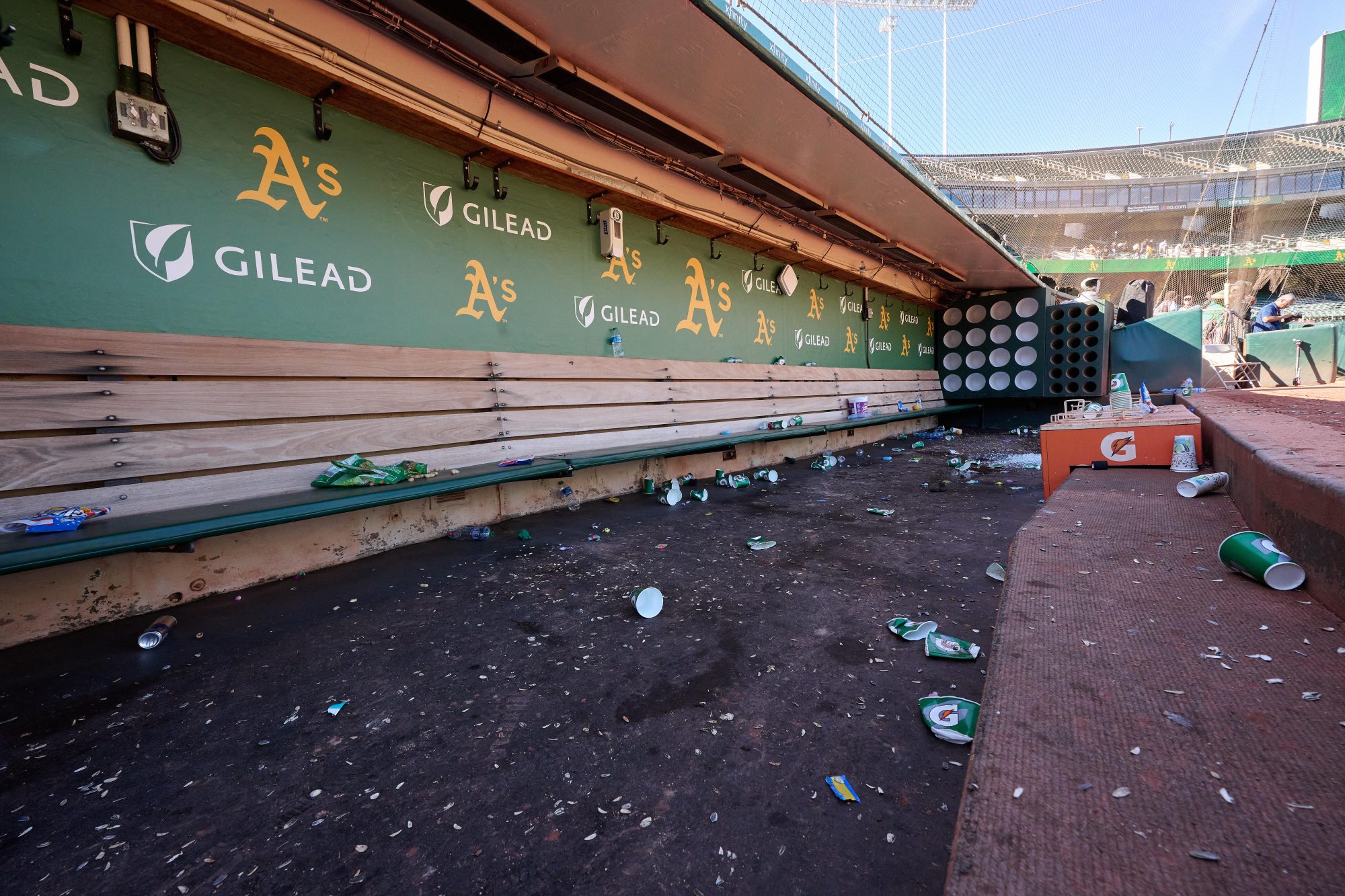


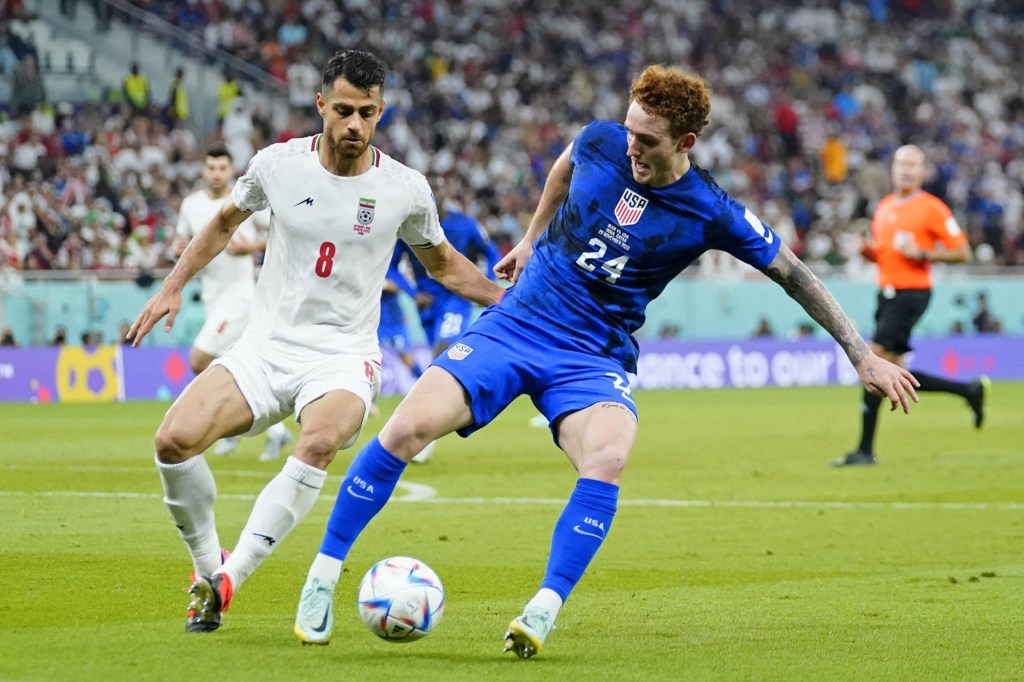


![[Subscription Customers Only] Jun 15, 2025; Seattle, Washington, USA; Botafogo owner John Textor inside the stadium before the match during a group stage match of the 2025 FIFA Club World Cup at Lumen Field.](https://frontofficesports.com/wp-content/uploads/2026/02/USATSI_26465842_168416386_lowres-scaled.jpg?quality=100&w=1024)
![[Subscription Customers Only] Jul 13, 2025; East Rutherford, New Jersey, USA; Chelsea FC midfielder Cole Palmer (10) celebrates winning the final of the 2025 FIFA Club World Cup at MetLife Stadium](https://frontofficesports.com/wp-content/uploads/2026/02/USATSI_26636703-scaled-e1770932227605.jpg?quality=100&w=1024)



